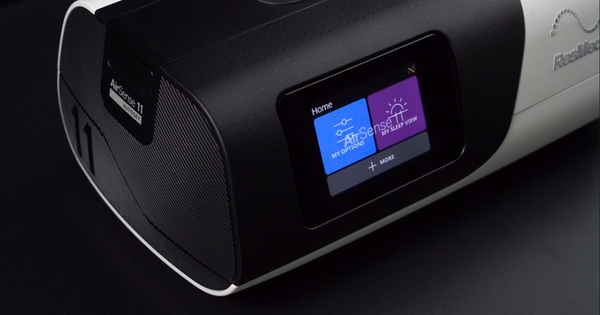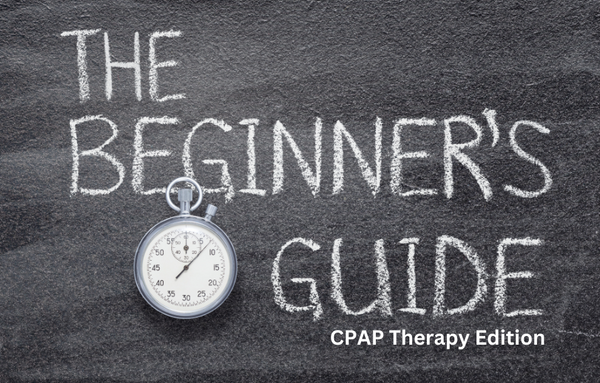The Surprising Effects Sleep Apnea Has On The Brain
March 25, 2020

We all know that we need to get a decent night of sleep in order to feel like a normal human being the next day. But did you know that prolonged periods of sleep disturbances and interruptions can impact your brain health?
In this article, we are going to discuss exactly what happens to our cognitive functioning when we suffer from sleep disorders such as Sleep Apnea.
Have Brain Fog? It May Be Due To Sleep Apnea
We’ve all experienced brain fog at one point or another. You know the feeling - you wake up but your brain continues to take a lie-in. Carrying out daily morning tasks such as remembering your apartment keys or finding the words to say hello to your neighbour is as taxing as trying to climb Mount Everest.
No matter how much coffee you consume, brain fog often can stick around well into the first half of your day (or longer). While it is common, if you notice an increase in the number of times that you experience brain fog, it could be due to something that is disrupting your sleep schedule.
Many people don’t realize that disorders such as Sleep Apnea have the ability to greatly impact cognitive functioning. We’ve heard of the physical implications such as high blood pressure and diabetes. But this sleeping disorder takes as much of a toll on our brain as it does our hearts.
If you are looking for a cause of your brain fog, it may be time for you to consult with your general physician and a sleep specialist.
The Link Between Brain Function And Sleep Quality
But how exactly is brain function linked to sleep quality? Scientific research has heavily pointed towards the fact that in order for our brains to function and develop properly, we need to achieve an adequate level of sleep quality.
Our brains are constantly operating even while we sleep. While you may be forgiven for mistaking them entering into an “off” mode during sleep, this is far from the truth. In fact, this essential organ relies on the act of sleeping to carry out a number of different tasks such as:
Solidifying memory - A central function of sleep is allowing our brains to consolidate long-term memory. Neural connections are being constantly made during our waking hours. While asleep, our brains are able to disconcert which of these connections are important and which are not.
Removing toxins - According to a sleep study carried out by the NCBI, our brains have the ability to clear out toxins from the body more rapidly than when we are awake.
Improving cognitive abilities - Cognitive functions such as attention and decision making relies on sleep. “Brain plasticity” helps us to improve our multi-tasking abilities while we sleep so that our reaction times get faster on a daily basis.
If sleep quality is poor and an individual is experiencing a period of sleep deprivation due to Sleep Apnea or other disorders, this will have a direct impact on the brain’s capacity to function correctly. That is why many people who are constantly fatigued often have slower reaction times, poor concentration levels and have trouble retaining new information.
The Surprising Impacts OSA Can Have On Our Brain Health
Obstructive Sleep Apnea (OSA) reduces an individual’s ability to get a night of undisturbed sleep. So, it is not surprising that it impacts brain health in some shape or form. What is surprising is just how much of an alarming impact it can have.
For the purpose of this article, we are going to look at the top five brain health changes that you may experience with Sleep Apnea.
Memory Loss
Memory loss and OSA go hand in hand. Due to a lack of restorative sleep, OSA patients have been known to have trouble converting short-term memories into longer ones. As storing experiences is a vital cognitive function for retaining information, many people who have Sleep Apnea report experiencing forgetfulness and impaired memory retention.
Dizziness
Experiencing dizziness, especially first thing in the morning, is not uncommon for OSA patients. The reason that this commonly occurs is that the brain has been starved of oxygen for a period of time. Most commonly the feeling of dizziness is due to changes in the inner ear. Due to Sleep Apnea patients experiencing apneic episodes of interrupted airflow, it is possible that this, in turn, affects air pressure within the ear canal. In many studies carried out by sleep matter experts and researchers, they found that many OSA patients often report a moderate to severe level of dizziness.
Migraines
Migraines are another common side effect of Sleep Apnea. This symptom can be extremely debilitating especially when you are already having to cope with fatigue. In many cases, Sleep Apnea patients will first experience migraines during normal sleeping hours.
As the brain becomes deprived further of sleep and oxygen, this can translate into developing severe pain and aural sensations for sleep deprivation sufferers. If left untreated, these migraines have the capacity to greatly impact your brain health on a regular daily basis.
Vertigo
Vertigo, a more severe version of dizziness, is an inner ear and balance disorder. Often, this can develop from the onset of an ear infection. However, anything that affects the brain has been observed to easily transfer to the inner ear.
Since sleep disorders such as OSA reduces the amount of oxygen being sent to the brain, it can be a leading factor to the development of vertigo. Although more studies need to be carried out to confirm this, many believe that there is a strong link between brain health and vertigo.
Brain Shape Changes
Shockingly, Sleep Apnea has the capability of changing the physiological makeup of our brains. We already know that during an apneic event, the brain isn’t receiving enough oxygen which causes OSA patients to jerk awake. This stress combined with chronic fatigue has been proven to cause damage to the brain itself.
There are structures within the brain called mammillary bodies which play an important role in memory storage. Researchers have found that these structures are 20% smaller in individuals who experience interrupted and troubled sleep than their healthy sleep counterparts. Additionally, other studies that have been carried out suggest that sleeping disorders also have the ability to impact grey and white matter.
According to an American Academy of Sleep Medicine study, patients who suffer from severe OSA experience significant deficits in grey matter concentrations in particular areas of the brain. This can lead to poor memory, hormonal and emotional imbalances and cardiovascular issues. Additionally, damage can happen in the brain’s fibre pathway which impacts white matter. If the structure of white matter is compromised then patients can experience difficulty regulating moods and blood pressure.
Is It Possible To Reverse The Impacts Of Sleep Apnea On The Brain?
The good news is that with the right intervention and treatment it is possible to reverse impacts that Sleep Apnea has on the brain. CPAP therapy is known for being the gold standard for treating individuals with OSA and for good reason too.
Due to the therapy’s capability to improve an individual’s ability to achieve a restful night of sleep, research suggests that with consistent treatment it will also improve any OSA symptoms such as migraines and dizziness. If you are an OSA patient and find that you are still experiencing any of the symptoms mentioned above, it may be worth speaking with your sleep specialist to see if your course of treatment needs to be adapted.
Sleep Apnea certainly is an interesting disorder when it comes to the changes your body experiences but with CPAP therapy, it is manageable. Interested in finding out more? Our sleep disorder experts can help answer any questions you may have about CPAP equipment or treatment.
Share:
Leave a comment
Comments will be approved before showing up.



